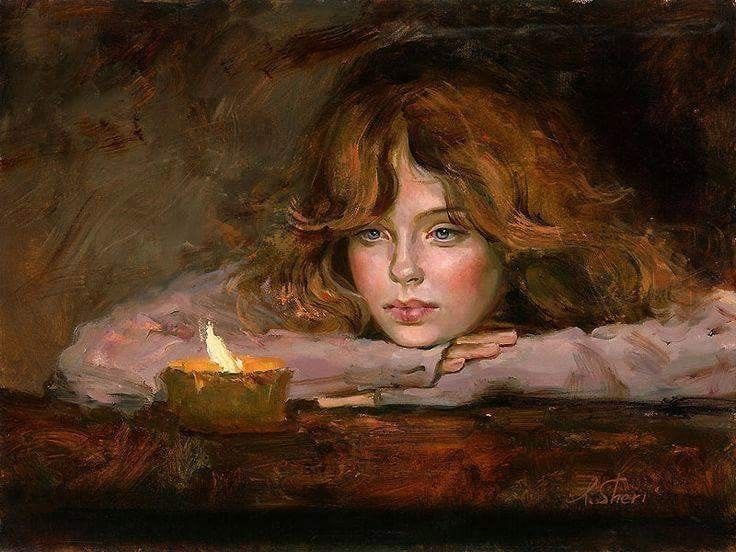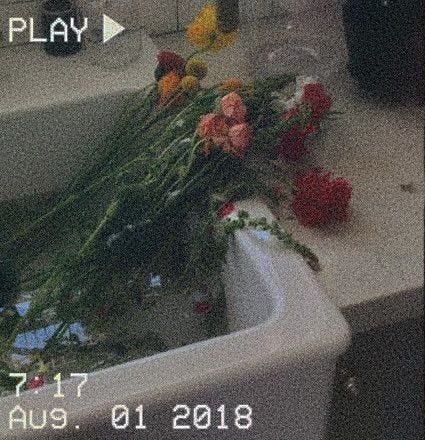Is everything Maktub?
How loudly we echo, how brightly we burn, how we name the ache that brought us here.
At what point does life become a story? And at what point does a story start masquerading as fate?
Is everything Maktub? Is everything written? These words do not scream, they murmur. A whisper braided in the marrow, telling us everything unfolds because it must. Not by choice. Not by chance. But because it was already sewn in the hem of time. Yet, even in this gentle certainty and predestined architecture, ache finds its place. A haunting call to inevitablity. Was the silence always encoded in the script, Or was it the ghost of a line we were too afraid to read aloud?
They say follow the signs, Santiago did, in The Alchemist. He believed in omens, in celestial blueprints, in the divine syntax of the universe. But what about the signs that arrive after the crossroads? The ones that don’t guide but grieve? The objects that echo: a song on the shuffle, a scent on someone’s coat. These are the echoes of unlived lives. the version of you that would have existed if you had turned right instead of left.
We meet people who leave fingerprints on our timelines, not with grand declarations but with the quiet way they shift our axis. Sometimes its the way their absence rearranges the furniture of our days. And slowly, we begin to understand that not everyone who enters our life is a chapter in our story. Some are punctuation marks, some are asterisks. Some are the space between breaths, impossible to explain, yet deeply felt. And on a sunday night you begin to wonder “what am I, truly?” A voice, or just it’s echo? A spark, or merely the smoke that lingers after? And that’s where the unraveling begins—not with answers, but with questions that refuse to stay quiet.
And if we look closely, really close, our fate divides us into patterns. Mostly two, which could sound ambiguous just because. Those who remain in the air long after they’ve left. And those who arrive like lighting and never look back. Echo and Flame.
Echo or Flame?
There are days I feel like an echo, not a person. A reverberation of choices I don’t remember making, carrying the voice of a version of me I no longer recognize. Echoes don’t create. They respond. They repeat. They remember. And isn’t that what most of us do? Respond to what we’ve been given, repeat patterns we didn’t invent, remember pain we never fully lived through. Echoes have no origin of their own—they are shaped by architecture, bent by the spaces they travel through. So am I.
Others are flames. They burn through the script. They believe in ignition over instruction. They don't read the stars —they set them on fire. But even fire is fed by something. Even the fiercest blaze obeys the oxygen it never asked for. A flame doesn’t choose its fuel—it simply consumes. And that, too, is a kind of fate, isn’t it? Not the calm surrender of the echo, but a furious acquiescence. The fire may resist the shape of the match, but it still becomes what it was always going to be.
(My soul's inquiry)
What is Maktub?
Maktub isn’t about predestination at all. Maybe it’s about perception. Maybe what’s written isn’t the story, but the outline. The rest is what we fill in—how loudly we echo, how brightly we burn, how we name the ache that brought us here. So there’s a cruelty in clarity. Because once you start to see the strings, you can't unsee the puppet show. You realize that every goodbye had the taste of fate long before the first hello. That the detour was the road. That your heartbreak was not a mistake, but a milestone. And suddenly, “meant to be” stops being comforting and starts sounding like a sentence. Not a poetic justice. Just…a structure.
The fate of flowers—whether they are tucked into someone’s hair while going to the temple, handed over to you on your birthday or crushed beneath a stranger’s careless step, or left gently on a grave with more silence than words—reminds us that fate is not always about grandeur. Sometimes, it’s about placement. About timing. About which direction the wind was blowing when it mattered.
Maybe fate isn’t a straight line. Maybe it’s vapor—gathering and vanishing depending on the light, more mirage than map. A constellation of chances masked as choices, of accidents that arrive too precisely to be coincidence. We try to define it like it’s a thing we can trace—carved into the sky or skin—but maybe fate only exists in motion. In detours. In the almosts. In the way, some flowers bloom in vases and others are forgotten on sidewalks. And maybe none of them chose their ending—only lived the shape of what they were given. Perhaps fate isn’t a path but a tide. Maybe it pulls, not pushes. Maybe it doesn’t answer, only reflects. And maybe it was never supposed to give us meaning—only movement. Because perhaps the echo and the flame have the same mother fate, both of which run parallel. One repeats, one resists. One bends, one burns. But both are trying to make sense of a script they didn’t write.
So, Is everything Maktub?—maybe we’re not really asking if it’s all written.
Maybe we’re asking if it ever could’ve been different.
And maybe the answer doesn’t matter as much as the fact that we keep asking.
Because to ask is to echo.
To burn is to hope.
“Maktub” she said. “If I am really a part of your dream, you’ll come back one day.” - Paulo Coelho, The Alchemist.
-Himani.





